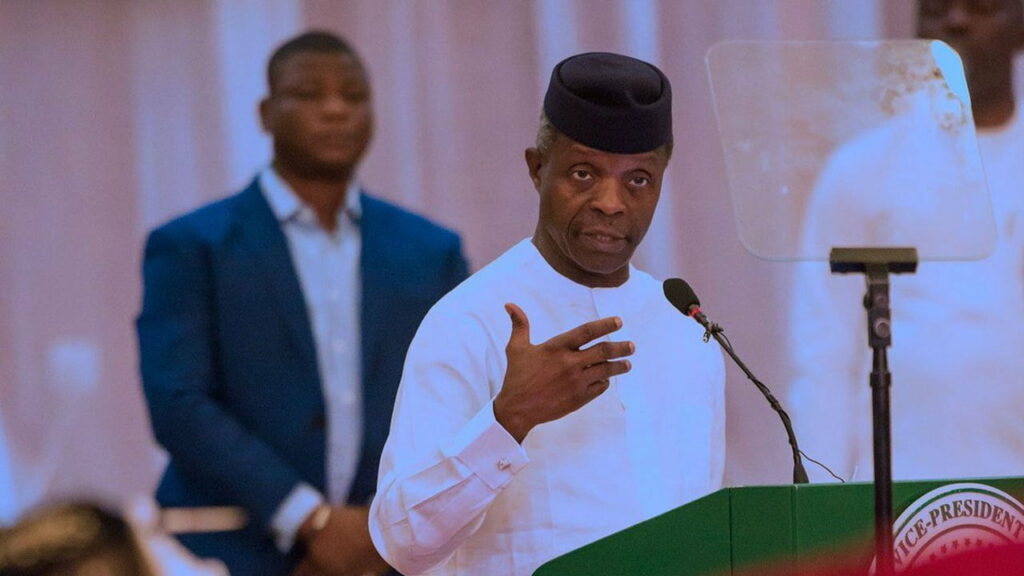Nigeria’s vice-president, Yemi Osinbajo has stated that multinational organisations should adopt debt relief initiatives that will not affect Africa’e growth.
This was stated on Friday by Osinbajo while delivering a special address at the virtual edition of the 2022 World Economic Forum.
He was chosen to deliver one of the 12 special addresses at this year’s event.
Laolu Akande, Osinbajo’s spokesperson, quoted the vice-president as saying: “the creation of $650 billion in new Special Drawing Rights last year was a step in the right direction, but more needs to be done to enable African and other developing countries to access the SDRs that are not needed or being used by developed or emerging economies.”
He also urged multilateral organisations to consider the huge obligations placed on African countries and adopt debt relief initiatives such as the Debt Service Suspension Initiative and the Common Framework for Debt Treatments in a way that will not further constrain the resumption of growth to the continent.
He listed some of the progress made in Africa, including the recovery from the global pandemic, economic growth by 3.7% last year, and a projected 3.8% growth in 2022.
Osinbajo noted that an African Continental Free Trade Area agreement has been put in place to fast-track economic transformation as the continent is making giant strides in agriculture, manufacturing, and digital technology.
According to him, in Nigeria, 6 unicorns have emerged in the past six years.
“The continent grew by 3.7% last year and is said to grow by 3.8% in 2022,” he said.
“‘Indeed, as the last frontier in development, Africa has the potential to become the factory of the world especially given its bold steps to integrate through the African Union agenda 2063 and the African Continental Free Trade Area agreement.
“‘There are several other reasons again to be positive about the African growth story given that its large youth population holds the prospect of a demographic dividend and also by giving greater space at providing more opportunity to the private sector.
“The continent is also making giant strides in agriculture, manufacturing, and digital technology.
“In Nigeria, for instance, 6 unicorns have emerged in the past six years and this is despite all of the challenges in these past years.
“Such a positive outlook anyway must be tempered by the realisation that Africa continues to need the collaboration and partnership of the international community because unless care is taken, there are several developments that can derail that promise.”
